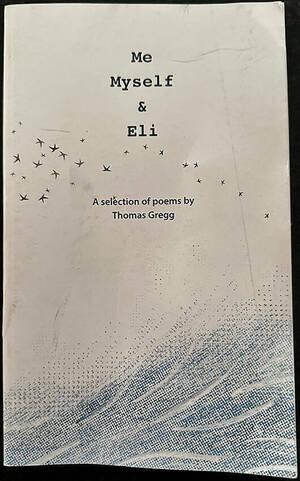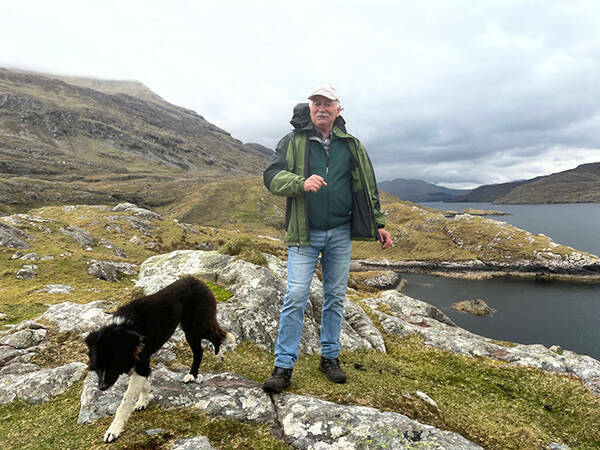As a travel writer who scouts for compelling stories, I talk to my cab drivers. Sometimes our conversations lead me to happenin’ musical venues and less-discovered cultural gems. Sometimes they help me deepen my understanding of a whole country.

A one-quarter-Irish Domer, I’ve always paid more attention to Ireland than most people do. “Your great-grandfather John Murray from Galway married Mary Murphy from Cavan,” my mother reminded me unnecessarily before I headed to Dublin for a travel writer’s conference last April.
Dublin’s airport doesn’t have a train into town, so I hopped into a cab. I asked my driver where to go for traditional Irish music and other recommendations.
“I’ve heard good things about the famine museum,” he said. When asked, I shared the reason for my visit and mentioned that I teach writing, which provided a natural segue.
“I just published my first book of poetry!” he replied. “At age 62.”
I wish I hadn’t thought self-published? because that reveals my regretted snootiness. In fact, 5,000 copies of cabbie Thomas Gregg’s collection, Me, Myself & Eli, were published in 2021 by Dublin Port Company, the local port authority, which dabbles in supporting emerging poets.
I had to buy it. At the next red light, Gregg jumped out and extracted a copy from his trunk. I handed him 10 euros — he donates a portion of his proceeds to a neighborhood support group for parents of neurodiverse children — and later wished him well.
How likely was that serendipitous literary encounter between two writers? Perhaps more likely in Ireland — a land of lyrical spirits — than elsewhere, I’ve come to believe.
Since he was a teenager, Gregg has written down his poetic thoughts here and there, often on his phone. “I knew it then that I had the words inside / But not the confidence to let them flow,” he writes in “Inspired.” Recent life-changing events — the pandemic and the birth of his grandson, Eli — propelled him to follow this deferred dream.
Some poems focus on Gregg’s recapturing the delight of play and answering Eli’s many questions. “In Eli’s eyes today we are all children / to play with too,” he writes. Others dwell on weightier issues from an urban, working-class perspective. He writes of “nervous disunity” in the larger community: “the whole bloody system needs a serious delousing.” His social conscience drew my attention and reflections to past miners’ unrest, the pain of Ireland’s all-too-common homelessness, and the angst of solitary deaths during the pandemic.
Overall, Gregg finds a balance between concrete social criticism and joy, as he celebrates a lasting love for his wife, Polly, and the elation of witnessing his newest descendent thrive. Reading his poems, I felt invited into the rooms and streets and decades of his life, his witness to both daily, wrenching injustices and Ireland’s steadfast beauty.
“Sea spray soothes as waves collapse / Nothing matters here as life is at ease / The lighthouse watching out . . . still,” he writes of the comforting presence of the bright red Poolbeg Lighthouse at the mouth of the River Liffey.
After the conference, I traveled to the Wild Atlantic Way on Ireland’s western coast with fellow writers — and Gregg’s volume in my bag. A stop in County Mayo illuminated one of the most tragic of Irish experiences as we walked the coastal lands of the Lost Valley of Uggool, now a working farm and privately owned cultural and natural heritage site. The name sounds like something ancient or out of Tolkien, and the destination’s founder, Gerard Bourke, traces his ancestry here back three centuries.
After leaving at age 18 to work in England, Bourke returned home to help run the sheep farm. Growing up, he’d seen mainly “the isolation and the problems,” but he came to appreciate the valley’s stunning beauty and resonant stories. Ultimately, the need to share those stories — the same impulse Gregg feels about his Ringsend neighborhood in Dublin — inspired Bourke to perform a backbreaking “act of faith.” He spent three years (and some dynamite) building the road on which our van entered. The hilly path we traversed on foot took him 10 years to create while he was running the farm.
As we strode the sheep-dotted land and relished the views of Mweelrea mountain, Killary Fjord and the wide beaches, Bourke’s lyricism captivated us, his sheep dog, Jip, steady at his heels. Uggool comes from the Irish ubh iolair, which means eagle egg. Bourke and his wife, Maureen, are entrepreneurs, but they’re also visionaries who recognized that this three-hour hike could stand as a vibrant, sacred memorial to those who perished here during the Great Hunger of the latter 1840s.
According to an 1841 census, 747 people once inhabited the Lost Valley. They grew potatoes and dug peat for fuel. Then a potato blight killed the island’s main food supply, causing years of famine.

“Why couldn’t they eat fish?” another writer asked, our eyes scanning the coastline. During that first winter after the crop failed, Bourke explained, most residents pawned their fishing nets to pay for food. They had no idea how long it would last.
To compound the devastation, in 1851, most remaining Lost Valley dwellers — including Bourke’s ancestors — were evicted to create large grazing areas deemed a more “appropriate use of the land.” Lord Lucan, the local landlord, levelled 269 dwellings in one week. As Bourke recounted this history, we solemnly surveyed the stony cottage remains. Today, the valley has nine permanent residents, Bourke said.
After the eviction, one of Bourke’s ancestors returned as a herder, and his family gradually purchased the land, which is now part of Irish and European Union conservation efforts. Like those of my favorite Irish poet, Seamus Heaney, Bourke’s words resonated within me as he shared the Celtic tradition of the seven noble trees and recited the mythic song, “The Fairy Tree.”
What earthy poems might Gregg have written had he been born and raised in the Lost Valley instead of Ringsend, Dublin? I wonder now. How would he have called out the decades of rural injustices in his direct and honest words, while celebrating the serene joy elicited by Ireland’s abundant loveliness?
Bourke’s sense of mission and muscles have drawn a trail of steps and stories upon this coastal land, just as Gregg’s pen has through decades of closely observing Dublin life. I feel honored to follow these lyrical Irish spirits who, even though it wasn’t their primary occupation, pursued their callings to poetic expression.
Amy Brecount White ’85, writes about travel, fascinating people and how to improve biodiversity in your own backyard. For a copy of his poetry, contact Thomas Gregg through Facebook or through X @thomasgreggqpr. You can find out more about the Lost Valley of Uggool at https://www.thelostvalley.ie/.